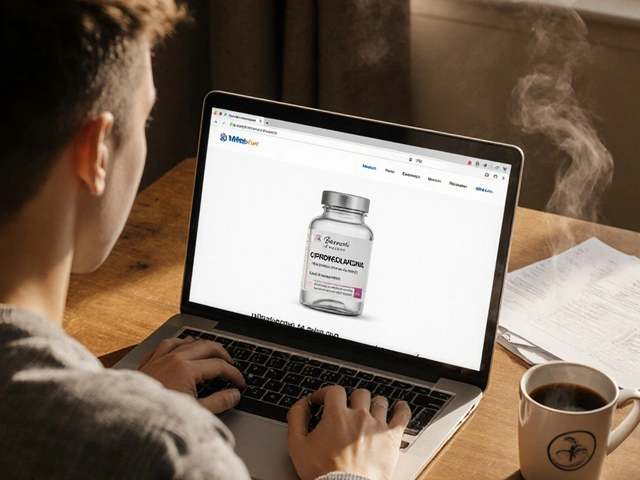Sustainability in Health: Easy Steps to Lower Your Medical Impact
Ever thought about how your prescriptions, supplements, or inhalers affect the planet? You probably focus on getting the right treatment, but the production, packaging, and disposal of health products leave a noticeable carbon trail. The good news is that small changes in how you buy, use, and discard medical items can add up to big environmental wins.
Why sustainability matters in health
Every pill, inhaler, or supplement bottle starts as raw material, travels through factories, and ends up in a pharmacy or online store. That journey consumes energy, water, and chemicals. For example, inhalers that rely on propellants release greenhouse gases, while plastic packaging adds to landfill waste. When millions of patients make the same choices, the collective footprint becomes significant.
Beyond the planet, sustainable health practices can lower costs and improve safety. Reputable online pharmacies that verify drugs can cut shipping distances, reducing fuel use. Choosing generic options often means less packaging and a smaller production scale, while still delivering the same therapeutic benefit.
Practical steps for a greener healthcare routine
Here are some no‑brain‑strain moves you can start today:
1. Pick the right pharmacy. Look for online or local pharmacies that follow strict verification processes. A legit pharmacy will display certifications, provide pharmacist contact info, and ship in recyclable packaging. This reduces the chance of counterfeit meds and cuts waste.
2. Opt for generics when possible. Generic drugs like cheap generic Allegra or Motrin often come in smaller bottles and use less plastic. They cost less, too, so you get health and savings in one go.
3. Choose inhalers with a lower environmental score. Some newer inhalers use dry‑powder technology that avoids propellants. If your doctor can switch you, ask about the eco‑friendly version and how it works for your condition.
4. Recycle medication containers. Many pharmacies have take‑back programs for blister packs, bottles, and inhaler canisters. If yours doesn’t, check local waste‑management guidelines – many communities treat these items as hazardous waste to keep harmful chemicals out of landfills.
5. Reduce supplement packaging. Bulk powders or capsules from reputable brands often use minimal packaging. Compare products like White Lily, Onion, or Club Moss supplements and pick the ones that ship in recyclable or biodegradable containers.
6. Cut down on unnecessary prescriptions. Talk with your healthcare provider about whether you truly need each medication. Sometimes lifestyle tweaks—like diet changes or exercise—can replace a low‑dose supplement, saving both money and packaging.
Implementing any of these steps doesn’t require a major overhaul. Start with one change, such as recycling inhaler canisters, and then build from there. Over time, you’ll see lower bills, fewer trips to the pharmacy, and a lighter footprint on the planet.
Remember, sustainability isn’t a one‑off project; it’s a habit you weave into everyday health decisions. By staying curious, asking the right questions, and picking greener options, you help protect both your wellbeing and the environment.

Lithium Explained: Properties, Uses, and Safety Guide (2025)
A clear, up‑to‑date guide on what lithium is, its key physical properties, major applications from batteries to medicine, and how to handle it safely.




